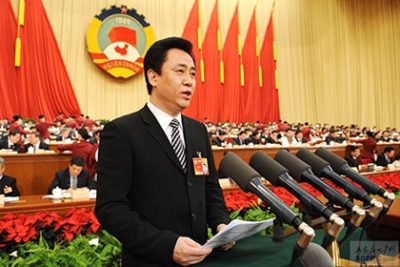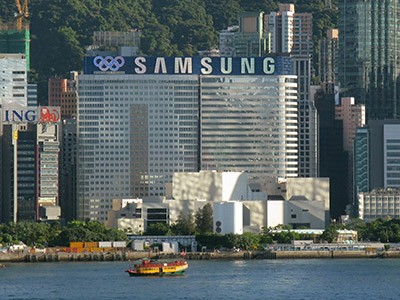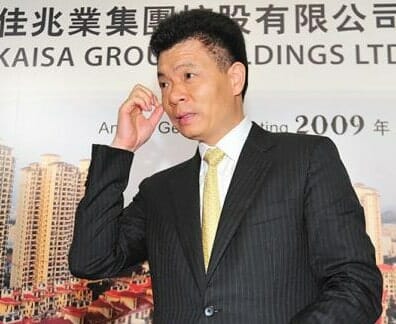
Leading corporate bosses, such as Evergrande’s Xu Jiayin, have long benefited from the perception of government support
China’s Evergrande Real Estate increased its debt load by 90 percent last year to RMB 297 billion ($45.8 billion), and now the property developer is said to have a 6.2 percent chance of defaulting on its repayments in the next year, according to a report by Bloomberg.
The increased risks for the homebuilder run by flamboyant Chinese billionaire Xu Jiayin (who also is known by his Cantonese name Hui Ka-yan) come amid increased concern over credit risks for Chinese corporate giants following a fresh round of bond defaults by state-run firms in the last two months.
While Evergrande stands out as China’s most indebted developer, and is also among the country’s top five builders by sales, the Guangzhou-based company is among a cohort of Chinese real estate companies that turned to the bond markets in attempt to catalyse growth last year as the mainland real estate market slowed down.
The developer, which made a string of high profile acquisitions last year, in addition to branching out into new businesses in bottled water, cooking oil, plastic surgery resorts and life insurance, has stated that 2016’s improving real estate market should allow it to meets its debt obligations.
Acquisition Drive Adds to Evergrande’s Debt Pile

In October Evergrande paid a record $1.6 billion to acquire the Mass Mutual Tower in Hong Kong
Despite already high levels of debt, Evergrande embarked on an aggressive expansion scheme last year, including the record breaking purchase of the Mass Mutual Tower in Hong Kong’s Wanchai district from Joseph Lau’s Chinese Estates for HK$12.5 billion ($1.61 billion).
Thanks in part to that acquisition, Evergrande’s total debt is now equal to 15 times its earnings before interest, taxes, depreciation and amortisation (EBITDA) and the developer has RMB 159 billion ($24.5 billion) in payments to make this year, with another RMB 54.8 billion ($8.4 billion) coming due in 2017, according to Bloomberg.
The Mass Mutual Tower represents a minority portion of Evergrande’s 2015 acquisition spree with the developer purchasing more than $1.7 billion in projects in Chongqing and Chengdu from companies belonging to Lau and other developers. Evergrande also committed $3.2 billion to buy seven mainland projects from Hong Kong’s New World Group in December of last year.
The developer also ventured into the finance sector during 2015 by acquiring a 50 percent stake in Chongqing’s loss-making insurer Great Eastern Life Assurance (China) Co for RMB 3.9 billion ($617 million).
Mainland Default Wave Triggers Concerns

In recent years, Evergrande has branched out into bottled water, cooking oil and other industries
While Evergrande’s debt level is the highest among 198 listed Chinese real estate developers and its ratio of earnings before EBITDA to debt is more than twice the average for listed mainland property firms, industry analysts are voicing growing concerns about China’s property sector in general.
Since Chinese power equipment firm Baoding Tianwei Group became the first Chinese state-owned enterprise to default on the principal of a bond in late February, the assumption that the mainland government would cover all obligations for state-run firms has been proven wrong repeatedly.
Baoding has since gone on to further defaults including missing RMB 1.59 billion ($244.8 million) in payments on interest and principal last week.
And Baoding is not the only SOE with debt trouble. State-owned China Railway Materials suspended trading in its bonds on April 11th, as it buys time to restructure its debts, and Dalian-based Dongbei Special Steel Group has defaulted on its bonds repeatedly after its chairman reportedly committed suicide in March.
In an announcement last week, Moody’s Investors Service noted, “the Chinese government’s declining direct support for state-owned enterprises (SOEs) that are not strategically important and that operate in competitive sectors.”
While Evergrande is not state-owned, it is among the Chinese industry giants that have long benefited from assumptions of government support. Now that these implicit guarantees are being called into question, the developer’s increased debt level has caused ratings agencies to downgrade the company’s debt, with Standard & Poors’ receutly lowering its rating for Evergrande’s unsecured bonds to CCC+, and Moody’s downgrading its debt to B3 earlier this year.
Bloomberg cited Jimmy Fong, an Evergrande investor relations official, as saying on Thursday that “a property market pickup had improved liquidity and it could meet near-term obligations.”
Credit Crunch Could Be on the Way for Chinese Developers

China supported domestic lending to mainland developers following Kaisa Holdings’ default in January last year
While China’s real estate markets are gathering steam this year, there are concerns that the recovery could be short-lived and the degree to which improving sales will allow developers to meet their debt obligations is triggering concerns among investors.
After international markets grew skeptical about Chinese developer debt following the Kaisa Holdings default last year, the Chinese government encouraged domestic lending to the industry. The result was that real estate companies issued RMB 703 billion ($107 billion) in domestic bonds last year, up from RMB 262 billion in 2014, and accounting for 40 percent of corporate bond issues in China last year, according to data from Shanghai Wind Information.
While the Chinese government likely saw this bond surge as a way to support an industry that accounts for at least 15 percent of GDP during a period of slowing economic growth, Beijing’s new approach to handling defaults on these bond issues is making industry analysts nervous.
In a statement on Thursday, Fitch Ratings noted that, “allowing widespread defaults without transparent criteria for selecting debtors who would be allowed to fail, and without a robust, predictable framework for supporting lenders absorbing credit losses, would risk provoking a “credit crunch” with significant destabilising effects on the economy and banking sector.”
While Evergrande looks like the domino that is most ready to fall, the rising risk of default in a sector that was once looked at as risk-free is likely to restrict the availability of new cash and boost the cost of borrowing industry-wide.
Leave a Reply